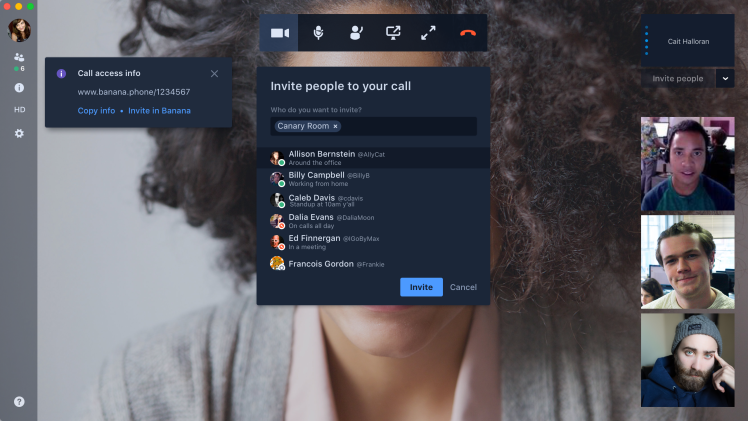Atlassian is taking a second swing at the work chat market with a new app that competes with Slack, Microsoft Teams, and a host of other services. Called Stride, the service is supposed to provide business users with a chat experience that’s more modern.
The company sees Stride as an extension of its broader work collaboration platform that includes applications like Jira, BitBucket, and Confluence. It combines group chat with lightweight task management and voice and video conferencing. In the future, it will tie into applications across Atlassian’s family of products, as well as into third-party apps through integrations.
Atlassian sees this as part of an overall platform the company is building rather than a single point solution, according to CEO Mike Cannon-Brookes. Furthermore, there’s an emphasis on doing more than just creating a program that will facilitate collaboration for collaboration’s sake.
“From the corporate direction point of view, we are building a platform for teamwork,” he said. “We aren’t trying to build a generic collaboration application.”
June 5th: The AI Audit in NYC
Join us next week in NYC to engage with top executive leaders, delving into strategies for auditing AI models to ensure fairness, optimal performance, and ethical compliance across diverse organizations. Secure your attendance for this exclusive invite-only event.
One key question hanging over Stride is what shape the overall work communication market will take in the coming years. Slack has shown early gains in the work chat space, and HipChat remains a serious player. But Microsoft and Google have their own group chat applications, and a stable of startups has sprung up offering their own solutions.
Stride’s strength is its connection to the rest of Atlassian’s portfolio. Jira in particular is dominant when it comes to software project management, so this could help attract companies to Stride. In addition, it’s cheap — teams can start using the service for free, and the paid version costs $3 per user per month. Teams already using HipChat Cloud will be able to move to Stride for free for the first year.
One of the chat app’s key features is a Focus mode that allows users to say that they’re heads-down on a project for a set amount of time. Coworkers who try to message people who are focusing will be greeted with messages asking if they would like to break into those folks’ self-imposed chat exile.
It’s designed to be a more work-friendly “do not disturb” mode that helps minimize distractions while making sure that other teammates know their colleagues aren’t away for no reason. When users return from their focus break, they’re greeted with a screen summarizing all of the messages and action items that appeared in the channels they’re members of while away. (Those messages aren’t filtered or prioritized, however.)
Stride also includes some table stakes features for modern work chat applications. For example, users can now start up video and voice calls inside a channel and invite participants of a channel into a group call. While there, users can set up action items and attach them to the record of the call so that people who weren’t able to participate can see what was decided afterward.
The service is missing support for threading messages, a feature that other chat applications like Teams have been focused on from the get-go. That said, chat vendors haven’t been able to figure out a single threading implementation that works well for everyone.
The launch of Stride doesn’t mean HipChat is dead — Atlassian will continue to support the cloud-based chat service as well as HipChat Server, its on-premises product.
Correction 9:05 Pacific: This story initially attributed comments to Atlassian CEO Scott Farquhar. That was incorrect. They were made by CEO Mike Cannon-Brookes.

